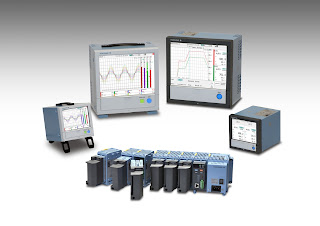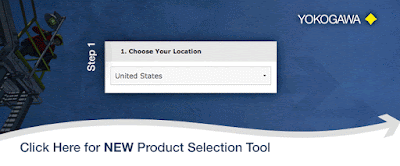A blog intended to educate and inform those interested in industrial control instrumentation and process control equipment. Weekly posts on various subjects ranging from pressure / temperature / level and flow instruments, control valves, analytical instruments, drives and actuators, recorders, and process weighing.
For more information, visit the Power Specialties website or call (816) 353-6550
Showing posts with label Process Instruments. Show all posts
Showing posts with label Process Instruments. Show all posts
Highly Trained and Innovative Sales Engineers are Standing by, Ready to Assist
Power Specialties' highly trained and innovative Sales Engineers are standing by, ready to assist you with your next instrumentation and control requirement. All of Power Specialties personnel are skilled in applying the best products for any given application. From discreet components to full systems integration, Power Specialties sales personnel possess the application experience and product knowledge needed to assure you select the safest, longest lasting, and most economical solution.
https://powerspecialties.com
(816) 353-6550
Magnetic Level Gauges: Versatile and Highly Visible Tank Level Measurement
Magnetic level indicators are used widely in liquid level measurement. Also known as Magnetic Level Gauges, or “Mag Gauges,” they are used, generally, to provide a display of liquid level in tanks and other vessels. They are popular solutions because they are visible from far distances and they have a non-invasive design which reduces the possibility of points points and the risks of fugitive emissions.
Magnetic level gauges are often employed in along with magnetostrictive, guided wave radar, or other measurement means to provide a reliable local display of liquid level. They can also be used to provide an an electrical signal that can be transmitted to recording instrumentation or controllers.
"Mag Gauge" construction is fairly simplistic – here's how it works: A magnetic float, designed for the specific gravity of the material being measured, rides inside a vertical pipe on top of the process media. A gauge with a magnetically coupled visual indicator is fastened to the pipe. As the media inside the pipe rises and falls, the visual indicator moves in the same fashion.
The features of Magnetic level gauges include:
Magnetic level gauges are often employed in along with magnetostrictive, guided wave radar, or other measurement means to provide a reliable local display of liquid level. They can also be used to provide an an electrical signal that can be transmitted to recording instrumentation or controllers.
"Mag Gauge" construction is fairly simplistic – here's how it works: A magnetic float, designed for the specific gravity of the material being measured, rides inside a vertical pipe on top of the process media. A gauge with a magnetically coupled visual indicator is fastened to the pipe. As the media inside the pipe rises and falls, the visual indicator moves in the same fashion.
The features of Magnetic level gauges include:
- Visual tank level indication.
- Wide operating temperature and pressure range.
- Continuous level measurement.
- No electric power required for operation.
- Low maintenance.
- Easier to read from greater distance than glass sight gauges.
- Can be applied to wide fluid level ranges with a single instrument.
- Break resistant, sturdy.
- Wide range of construction materials available.
- External mounting of ancillary indicators, switches, and transmitters with isolation from process media.
There are a number of options available so you can customize the level indicator for each specific application. The best way to proceed is to combine your process knowledge with that of a product specialist. Collectively, you'll be able to achieve an effective solution to your application challenge.
Labels:
Hawk,
Iowa,
Kansas,
level control,
magnetic level gauge,
Missouri,
Nebraska,
Process Instruments
Specializing in Providing Instrumentation and Control Solutions for Industry
Power Specialties provides a wide range of industrial control products, instrumentation, and equipment to a variety of industries including ethanol / biofuel, agricultural and specialty chemical, power, pharmaceutical, manufacturing, and oil and gas production. Products include; flow, level, pressure, temperature, analytical instrumentation, recorders, data acquisition, annunciators, loop controllers, steam jet vacuum systems, process weighing and instrument communications. Visit https://powerspecialties.com.
Yokogawa Smartdac+ Data Acquisition & Control for Paperless Recorders Type GX and GP
 |
| Yokogawa Smartdac+ for GX/GP recorders |
In 2017, Yokogawa introduced Release 4 of the SMARTDAC+® GX series panel-mount type paperless recorder, GP series portable paperless recorder, and GM series data acquisition system.
With this latest release, new modules are provided to expand the range of applications possible with SMARTDAC+ systems and improve user convenience. New functions include sampling intervals as short as 1 millisecond and the control and monitoring of up to 20 loops.
For more information, visit Power Specialties here, or call (816) 353-6550.
Rotating the Control Head on a Yokogawa ADMAG AXF Magnetic Flowmeter
 |
| Yokogawa AXF magnetic flowmeter |
The ADMAG AXF is the magnetic flowmeter which has adopted the proven Dual Frequency Excitation. Moreover, the Enhanced Dual Frequency Excitation has been newly added to tackle more severe applications.
The AXF has user-friendly functions; such as an electrode adhesion level diagnosis function, infra-red switches which can be used for setting parameters without opening the case cover, ability to change the direction of electrical connection on the site.
Based on FOUNDATION™ fieldbus specifications, AXF Fieldbus models offer more flexible instrumentation through a higher level communication capability and propose the cost reduction by multi-drop wirings with less cables.
This video demonstrates how to rotate the control head in the event it is oriented in the wrong direction.
The 2 Most Common Industrial Temperature Sensors
 |
| Thermocouple & RTDs come in many shapes, styles, and configurations. |
A thermocouple is a temperature sensor that produces a micro-voltage from a phenomena called the Seebeck Effect. In simple terms, when the junction of two different (dissimilar) metals varies in temperature from a second junction (called the reference junction), a voltage is produced. When the reference junction temperature is known and maintained, the voltage produced by the sensing junction can be measured and directly applied to the change in the sensing junctions' temperature.
 |
| Diagram of Type K thermocouple circuit |
As a general rule, industrial thermocouples can be made to withstand higher temperatures and come in a wider variety of thermocouple types. MgO thermocouples are flexible and have wider selection of measurement junction configurations. An MgO thermocouple consists of a thermocouple element encased in a metal sheath and hard-packed with magnesium oxide mineral insulation. Thermocouple sheaths are fully annealed and can be formed into different configurations (minimum bend radius is twice the outer diameter of the sheath). The measuring junction can also be sealed from the environment, reducing the potential for contamination issues.
A typical industrial thermocouple is constructed using an element inserted into a process/environment specific protection tube. In certain configurations, it may be possible to replace the element without removing the protection tube from the process. There are endless combinations of elements and tubes, and are also available separately as replacement parts.
 |
| Standard industrial temperature sensor configuration (either thermocouple or RTD) |
RTD’s (resistance temperature detectors), are temperature sensors that measure a change in
resistance as the temperature of the RTD element changes. They are normally designed as a fine wire coiled around a bobbin (made of glass or ceramic), and inserted into a protective sheath. The can also be manufactured as a thin-film element with the pure metal deposited on a ceramic base much like a circuit on a circuit board.
 |
| Coil wound RTD element (image courtesy of Wikipedia) |
RTDs are resistive devices, so lead wire resistance directly affects its accuracy. The error can be quite large, depending on the lead wire resistance (measured in ohms / foot).For example, an uncompensated 2-wire circuit using 30 gauge wires can have an error as high as 1.2°F per foot!Fortunately, there is a method to compensate for the lead wire resistance.
2-wire - One lead wire is connected to each end of the element. This arrangement is suitable for uses where the lead wire resistance may be considered as a constant in the circuit, or where changes in the lead wire resistance due to ambient temperature changes can be ignored.
3-wire - This is the most common of RTD configurations. One lead wire is connected to one end of the element and two lead wires are connected to the other end.The purpose of the third lead is to compensate for the lead wire resistance, thereby increasing accuracy.An instrument capable of utilizing a 3- wire RTD must be used to benefit from this configuration.
4-wire - The most accurate of the RTD configurations, this element uses two wires for each end of the element. Building on the 3-wire concept, compensation is made for the resistance in each lead wire, creating a highly-accurate temperature-measurement device for critical applications.An instrument capable of utilizing a 4-wire RTD must be used to benefit from this configuration.
For more information on temperature sensors, contact:
Power Specialties, Inc.
www.powerspecialties.com
9118 E. 72nd Terrace
Raytown, MO 64133
Toll Free: (800) 432-6550
Phone: (816) 353-6550
Fax: (816) 353-1740
Labels:
Iowa,
Kansas,
Missouri,
Nebraska,
Process Instruments,
Pyromation,
RTD,
sensor,
temperature,
thermocouple
Process Instrument Selection a Breeze with this Online Tool
 |
| Find process instruments fast! |
Let's step through a quick example. You will see how this quick and easy to use tool saves time by navigating quickly to the website pages detailing products meeting your requirements.
The Product Finder is accessible through a number of links throughout Yokogawa's network of Reps. Clicking the link lands you on the start page of the Product Finder. For this example, I am going to search for a flow meter with the following characteristics:
- Mass flow measurement
- Non-conductive liquid
- Accuracy of 1%
- Flow measurement device must have an integral transmitter
- Tri-clamp connections
Above, I declared my location as United States. The next step, shown
below, is to select "Flow" as the measurement parameter. You will see in
the drop down menu that there are many measurement elements that can be
selected, with Yokogawa products for each.
My selection of "Flow" returns a list of all the company's flow
measurement devices, of which there are many (this cropped screenshot,
shown below, only shows four, but there were many more) . This is where
the selector really helps you. Instead of examining several or many
different models, the user can focus the search by adding more product
characteristics. You can see the list of prompting questions on the left
side of the page. Answering these will narrow the search results to the
show only the products meeting all the criteria specified by the user.
The next image (below) shows selections of all my sample product
attributes entered on the left column. Note that there is now only a
single product that matches all of my sample criteria. The whole process
took less than two minutes. By clicking on the "View More Details"
button below the product image, I gain access to all of the available
technical, support, and product data for my selected flow measurement
device.
For more help and personal assistance in Kansas, Missouri, Iowa and Nebraska, contact Power Specialties. Combine their product knowledge and expertise with your process know-how for the best solutions.
Yokogawa Provides Customers with Easy-to-Use Online Product Finder
Yokogawa Corporation of America is a leading provider of Industrial Automation and Test and Measurement solutions. Combining innovative and reliable technology with project management, engineering services, and maintenance, Yokogawa delivers field-proven operational excellence, safety, and reliability.
They have just introduced an online product finder to assist customers in finding the right process instrument product.
Yokogawa Product Finder serves as a guiding tool to assist you in selecting world class instrumentation for your application(s). The tool will guide you through a series of basic questions and narrow down the product offering(s) based on the results of your entry.
Subscribe to:
Posts (Atom)








